Algeria’s 30 turbulent years — a timeline
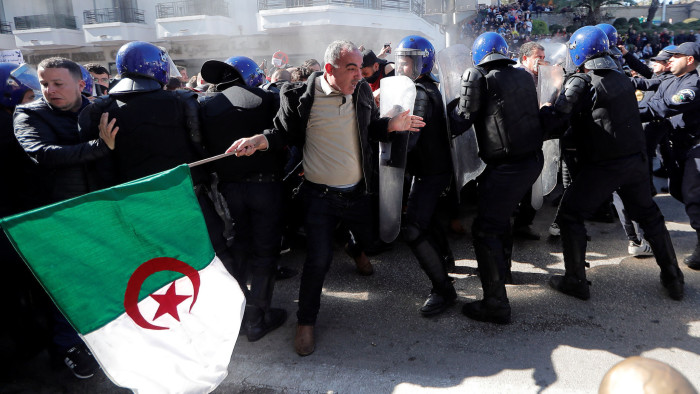
Roula Khalaf, Editor of the FT, selects her favourite stories in this weekly newsletter.
Since protests erupted in Algeria over single-party rule in 1988, the country has endured a bloody civil war and simmering dissent and struggled with a sluggish economy despite its oil and gas wealth.
As Algerians vent their anger over the announcement that 82-year-old Abdelaziz Bouteflika will stand for a fifth term as president, we look at key moments in the country’s recent turbulent history.
An eruption of anger
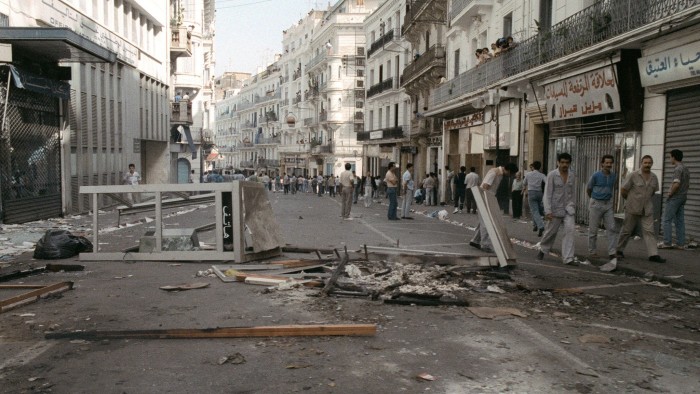
October 1988
Young Algerians take to the streets in an outpouring of rage against soaring unemployment and the one-party rule of the National Liberation Front (FLN), in power since independence from France in 1962.
The week-long riots, which became known as Black October, mark Algeria’s longest period of unrest for 26 years. Shops in the capital, Algiers, are torched and the offices of the FLN ransacked. Hundreds die after the army opens fire on protesters.
1989
In a concession to public anger, the National People’s Assembly overturns a ban on new political parties and passes a law allowing opposition parties to fight elections. The Islamic Salvation Front (FIS) begins its spectacular rise as a political force, winning 55 per cent of the vote in local elections the following year.
January 1992
The Algerian army steps in to annul the country’s first free and fair parliamentary elections, won by the FIS the previous month, and forces Chadli Bendjedid (in power since 1979) to dissolve parliament and stand down.
The government declares a state of emergency and disbands the FIS and its local and regional council administrations. The crackdown triggers 10 years of bloody civil war with Islamist groups.
The army installs Mohamed Boudiaf, a founder member of the FLN who fought in the independence war against France, as head of state.
A bloody civil war
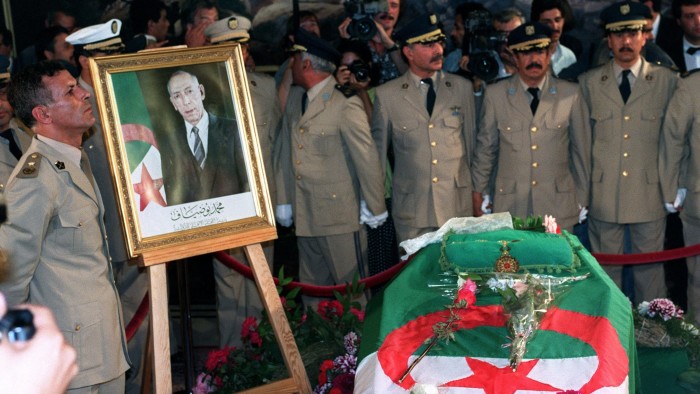
June 1992
Mr Boudiaf is killed while delivering a speech. The 73-year-old president is shot in the back of the head by one of his own security team, said to have ties to militant Islamists.
The Armed Islamic Group (GIA) emerges as one of the two main guerrilla groups fighting the government.
1994
Liamine Zéroual, a retired colonel, is appointed head of state, winning the presidential election the following year with a comfortable majority.
1996
More than 85 per cent of Algerian voters back constitutional changes in a referendum.
1997
Some of the bloodiest incidents of the civil war take place in a wave of massacres in villages in western Algeria. The bloodshed is blamed on the GIA, but questions are raised over the army’s failure to stop the violence.
The newly created Democratic National Rally wins parliamentary elections while the moderate Islamic party, Movement of Society, makes a good showing at the polls.
A fragile peace
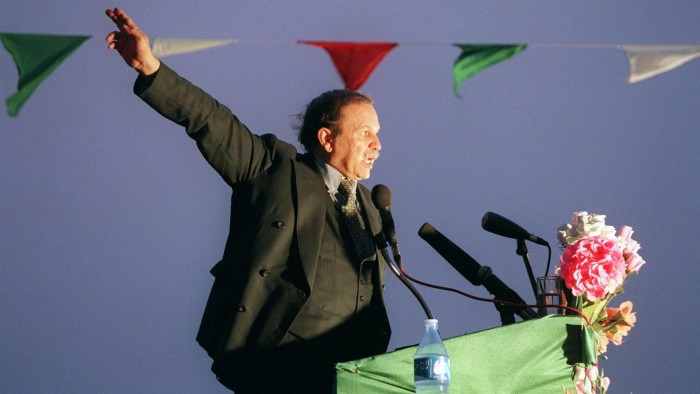
1999
Abdelaziz Bouteflika becomes president after opposition candidates pull out of the election amid concerns over vote-rigging. Despite his opaque regime, Mr Bouteflika wins popular approval for helping to bring an end to the civil war.
June 2003
After serving 12 years in prison, Abassi Madani — the leader of the outlawed FIS — is freed together with his deputy.
April 2004
Mr Bouteflika is re-elected for a second term in a landslide victory.
March 2005
A government-commissioned report acknowledges that Algeria’s security forces were responsible for the disappearance of more than 6,000 people during the 1990s.
September 2005
In a referendum, Algerians back an amnesty for those implicated in the violence.
The rise of al-Qaeda
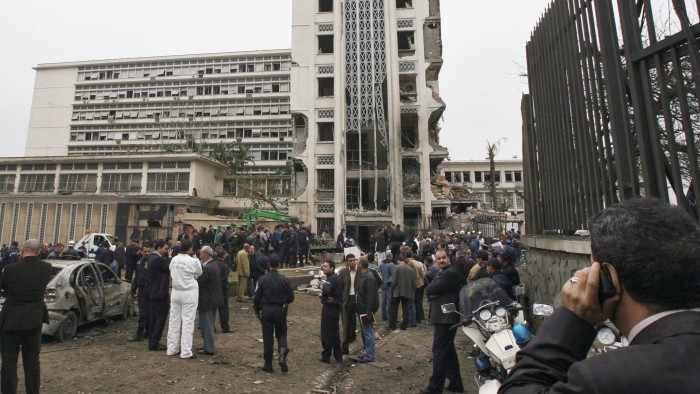
December 2006
A roadside bomb hits a bus carrying workers from a US oil company, killing one man. The Salafist Group for Preaching and Combat (GSPC) claims responsibility.
January 2007
GSPC renames itself the al-Qaeda Organisation in the Islamic Maghreb and intensifies its attacks.
April 2007
Thirty-three people are killed and 80 injured in two bomb blasts in Algiers, one targeting the prime minister’s office.
Bouteflika settles in
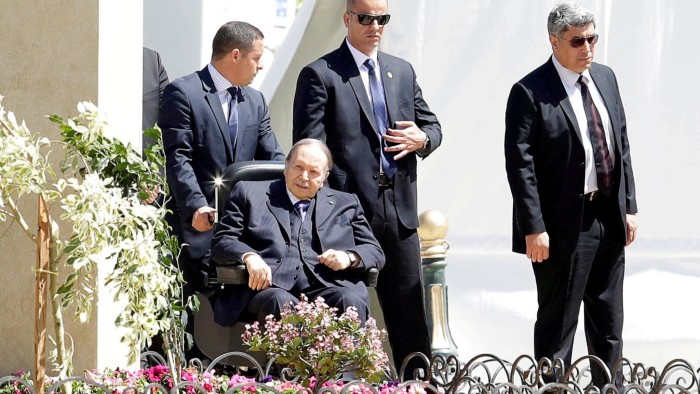
November 2008
Parliament approves constitutional changes, allowing Mr Bouteflika to run for a third term. He wins re-election the following year.
January 2011
Rising food prices spark riots across Algeria.
February 2011
Mr Bouteflika lifts Algeria’s 19-year state of emergency in response to demands from the protesters.
September 2011
The president ends the state’s monopoly over radio and TV.
October 2012
Al-Qaeda’s deputy leader in Algeria, Boualem Bekai, is killed by the army.
December 2012
French president François Hollande acknowledges his country’s “unjust and brutal” occupation of Algeria but stops short of making an official apology.
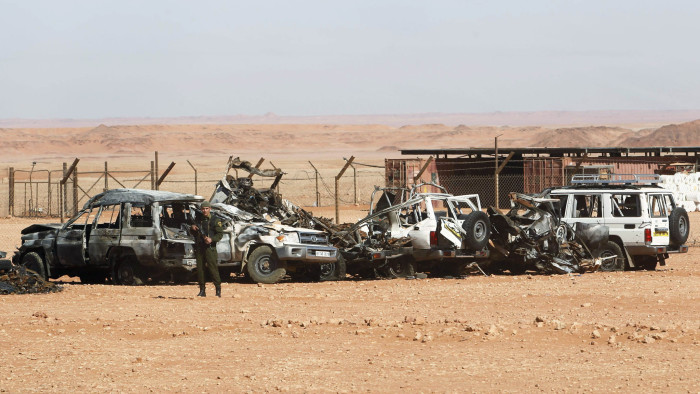
January 2013
Dozens of foreign hostages are killed by the Islamist al-Murabitoun group in a four-day siege at a remote gas facility. Algerian special forces storm the site.
April 2013
Mr Bouteflika suffers a stroke and spends three months in France being treated.
April 2014
Mr Bouteflika wins another term as president in elections dismissed by opposition parties as flawed.
February 2016
Parliament passes constitutional reforms limiting presidents to two terms.
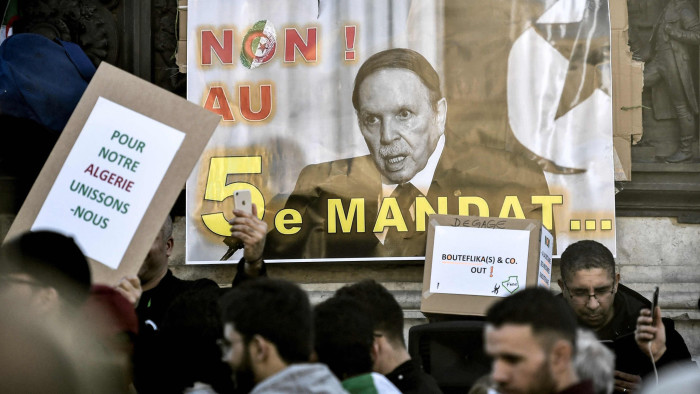
February 2019
Mr Bouteflika announces he will stand for a fifth term in Algeria’s forthcoming presidential elections, sparking protests.
March 8 2019
Algerians march in cities across the country in the biggest day of peaceful demonstrations yet against the ailing president’s bid for another term in office.
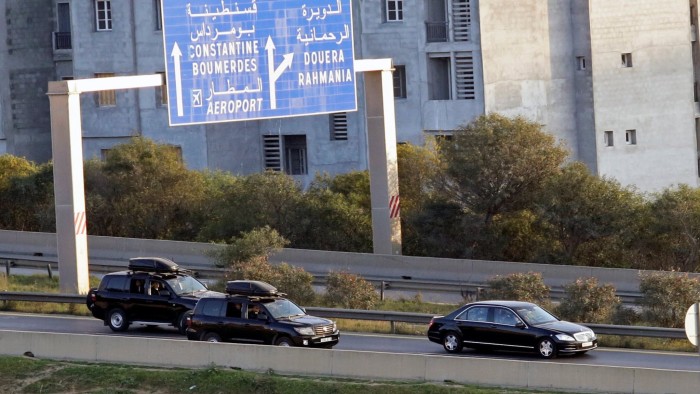
March 10 2019
Mr Bouteflika returns to Algeria after two weeks in hospital in Geneva but no information was released about the state of his health. Algerians have not heard their president’s voice in six years.
March 11 2019
In the face of growing protests, Mr Bouteflika bows to public pressure and announces he will not seek a fifth term. In a letter to the nation, released by state media, he also says April’s elections will now be postponed.
Comments